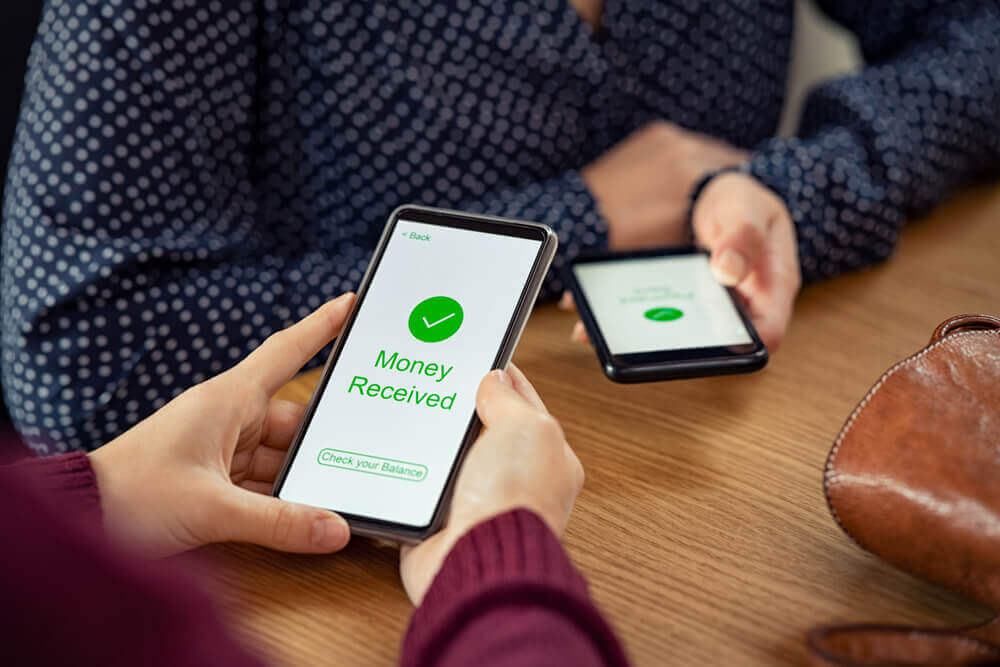How to Open a Business Bank Account in Finland: A Guide for U.S. Entrepreneurs
Learn how to open a business bank account in Finland with this guide. Get essential info and steps for setting up your business finances.

Finding the right business and personal accounts can be challenging, especially with so many options available. Cash App has become a popular financial solution for many since it offers a quick way to send and receive money, both for business and personal transactions.
This article will explore everything you need to know about Cash App business vs. personal account and other account solutions such as the Wise Business account.
Open a free business
account with Wise >>
Keep business and personal transactions separate with Wise
US account opening is free while other markets may vary
| Key Differences: |
|---|
| 1) Business payments have a 2.75% processing fee automatically deducted on each payment received 2) Cash for Business accounts do not need to pay an instant deposit fee 3) Businesses are required to report over $600 in commercial payments annually to the IRS when received via Cash App |
Before going into the different types of accounts that Cash App offers customers, it’s essential to take a step back and understand what Cash App does.
At its core, Cash App is a peer-to-peer financial solution that enables users to send and receive payments to other Cash App users for business and personal transactions. Cash App works¹ at a fast pace, so users can send and receive money quickly for personal payments from friends and families. Since its creation, Cash App has expanded its solutions to include Cash App for Business for small business owners and entrepreneurs.
Generally, transactions on Cash App are free. However, if users opt for instant transfers to bank accounts, these transactions do incur a small fee, 1.5%, with a minimum of $0.25 for the transfer amount. However, Cash for Business does not charge instant transfer fees. Instead, Cash for Business automatically charges a flat processing fee of 2.75% on incoming business transactions.
With Cash App for Business, small businesses and independent contractors can send and receive business-related payments via Cash App. However, both personal accounts and businesses can set up their own Cash App QR code or $Cashtag to accept payments from peers, customers, and clients. Cash App also offers its own debit card, the Cash Card, that personal and business accounts can use for transactions requiring a card.
Open a free business
account with Wise >>
Keep business and personal transactions separate with Wise
US account opening is free while other markets may vary
Do you have a business? When it comes to deciding on Cash App business vs. personal, this is the first thing to consider. If you have your own business, then you may want to get a business bank account. Cash App for Business offers this solution to customers to accept payments from customers and/or pay suppliers, vendors, or employees.
Remember, it’s a good idea to keep your business and personal accounts separate. This division of accounts will help you when tax time comes and prevent any mix-ups or extra manual work.
To better understand whether to do Cash App business vs. personal, there are a few different factors to consider before deciding on the right option for you. The type of account you will need will largely depend on the type of transactions (i.e., business vs. personal) and who you’ll send and receive payments from.
Let’s look at some key features and differences of each account type² ³.
| Cash App Business | Cash App Personal |
|---|---|
| Best for business transactions from customers and clients. | Best for personal transactions from friends and families |
| Businesses are required to report over $600 in commercial payments annually to the IRS if received via Cash App | There is no obligation to report personal payments for tax purpose |
| Business payments have a 2.75% processing fee automatically deducted on each payment received | No processing fees for incoming payments |
| Cash for Business accounts do not need to pay an Instant Deposit fee | Cash App for personal accounts need to pay a 1.5% fee for instant transfer transactions |
Open a free business
account with Wise 🚀
👆 US account opening is free while other markets may vary
With Cash App, you can easily change your account from personal to business easily via the app, and the process is free. Please note that you will always need to create a personal Cash App account before you can create a Cash for Business profile.
| Here is how to change your Cash App personal to Cash For Business⁴: |
|---|
1. Download Cash App and create a personal Cash App account with your email address and phone number 2. From the app, navigate to the profile icon on the home screen, located on the top-right of the screen 3. Go to ‘Personal’ or ‘Edit Profile,’ and you will see an option to Switch to a Business Account located at the bottom of the page 4. Cash App will ask you to complete some prompts as a final part of the process 5. Once you have switched from a personal to a business account on Cash App, you’ll see a green building icon next to your profile information 6. You can follow the same set of steps to switch back from a business account to a personal account if you decide you no longer need a Cash for Business account. |
Open a free business
account with Wise 🚀
👆 US account opening is free while other markets may vary
🚀 Keep business and personal accounts separate with Wise
If you're looking into other options to hold both business and personal accounts, you have a few options that can help you. Here's an overview of the business accounts that also have personal account options.
PayPal has been involved in the online payment space since the dawn of ecommerce. For this reason, the company enjoys a fair amount of trust from customers. For this reason, potential customers choose PayPal quite often as a payment method.
When it comes to getting a business account with PayPal, a potential customer needs to understand a few key factors that will impact their experience.
Venmo came onto the scene about a decade ago, with college students sending payments back and forth. Now, Venmo has become a mainstay of the payments industry. While the company is known for serving everyday consumers, they now offer a business account.
Wise gives customers the chance to run a business account, while also having the ability to keep a personal account. Let's overview a few key differences between Cash for Business and the Wise Business account.
| Cash for Business⁸ ⁹ | Wise Business |
|---|---|
| Requires business owners to provide receipts for transactions over $15. | No requirement |
| Supports payments to and from the UK only | Supports UK transactions as well as from many other countries around the world |
| No dedicated business support channel | Has a business support channel |
| Deducted a 2.75% fee from any incoming business payments | Incoming payments from 0.41% and free from the UK with local card details |
Wise also offers a personal account to help you streamline your finances and keep everything in one place.
Start using Wise Business today with a one-off fee for getting US account details. It’s a great way to start receiving money with no additional costs.
Open a free business
account with Wise 🚀
👆 US account opening is free while other markets may vary
🚀 Keep business and personal accounts separate with Wise
Learn more:
Cash App for Business: Everything You Need to Know
Sources:
*Please see terms of use and product availability for your region or visit Wise fees and pricing for the most up to date pricing and fee information.
This publication is provided for general information purposes and does not constitute legal, tax or other professional advice from Wise Payments Limited or its subsidiaries and its affiliates, and it is not intended as a substitute for obtaining advice from a financial advisor or any other professional.
We make no representations, warranties or guarantees, whether expressed or implied, that the content in the publication is accurate, complete or up to date.

Learn how to open a business bank account in Finland with this guide. Get essential info and steps for setting up your business finances.

Learn how to open a business bank account in Switzerland. Discover the essential steps to set up your business finances.

Learn how to open a business bank account in France. Get essential tips and steps for setting up your business finances.

Learn how to open a business bank account in Germany. This guide offers localized steps for setting up your business finances efficiently.

Is the Navy Federal Go Biz Rewards Card worth it? See our review of rewards, fees, benefits, and who qualifies for this business card.

Learn how to transfer money from your Bank of America business account to your personal account. Follow our step-by-step guide for secure transactions